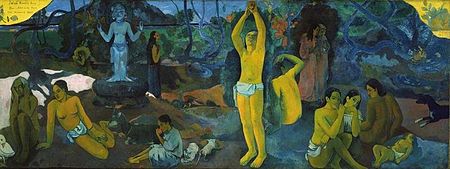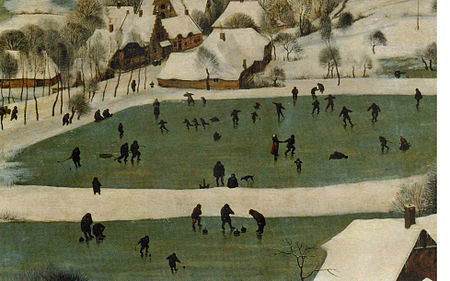Wends
|
Read other articles:

Wild plant conservation charity This article is about the British wildlife charity. For the type of lifeform, see Plants. For the band, see Jack Splash. This article needs additional citations for verification. Please help improve this article by adding citations to reliable sources. Unsourced material may be challenged and removed.Find sources: Plantlife – news · newspapers · books · scholar · JSTOR (August 2023) (Learn how and when to remove this messag…

Caramelised fruit tart Tarte TatinTypeTartPlace of originFranceRegion or stateCentre-Val de LoireCreated byTatin sistersMain ingredientsApples or other fruits Cookbook: Tarte Tatin Media: Tarte Tatin Caroline and Stéphanie Tatin The tarte Tatin (French pronunciation: [taʁt tatɛ̃]), named after the Tatin sisters who invented it and served it in their hotel as its signature dish, is a pastry in which the fruit (usually apples) is caramelized in butter and sugar before the tar…

Province of Turkey This article needs additional citations for verification. Please help improve this article by adding citations to reliable sources. Unsourced material may be challenged and removed.Find sources: Çorum Province – news · newspapers · books · scholar · JSTOR (October 2023) (Learn how and when to remove this message) Province in TurkeyÇorum ProvinceProvinceLion Gate in HattusaLocation of the province within TurkeyCountryTurkeySeatÇorumGo…

この項目には、一部のコンピュータや閲覧ソフトで表示できない文字が含まれています(詳細)。 数字の大字(だいじ)は、漢数字の一種。通常用いる単純な字形の漢数字(小字)の代わりに同じ音の別の漢字を用いるものである。 概要 壱万円日本銀行券(「壱」が大字) 弐千円日本銀行券(「弐」が大字) 漢数字には「一」「二」「三」と続く小字と、「壱」「弐」…

Численность населения республики по данным Росстата составляет 4 003 016[1] чел. (2024). Татарстан занимает 8-е место по численности населения среди субъектов Российской Федерации[2]. Плотность населения — 59,00 чел./км² (2024). Городское население — 76,72[3] % (2022)…

Spilit of the Australian Labor Party in 1916 This article is part of a series aboutBilly Hughes Member for West Sydney (1901–1917) Member for Bendigo (1917–1922) Member for North Sydney (1922–1949) Member for Bradfield (1949–1952) Prime Minister of Australia Term of government (1915–1923) 1916 Conscription plebiscite Labor Party split of 1916 National Labor Party Nationalist Party formation 1917 Conscription plebiscite Egg-throwing incident Commonwealth Electoral Act 1918 1919 Monopoly…

List of events in the year 1404 ← 1403 1402 1401 1400 1399 1404 in Ireland → 1405 1406 1407 1408 1409 Centuries: 13th 14th 15th 16th 17th Decades: 1380s 1390s 1400s 1410s 1420s See also:Other events of 1404 List of years in Ireland Events from the year 1404 in Ireland. Incumbent Lord: Henry IV Events This section is empty. You can help by adding to it. (September 2016) Births This section is empty. You can help by adding to it. (September 2016) Deaths Flann Óc mac Séoan Ó Domhnall…

此条目序言章节没有充分总结全文内容要点。 (2019年3月21日)请考虑扩充序言,清晰概述条目所有重點。请在条目的讨论页讨论此问题。 哈萨克斯坦總統哈薩克總統旗現任Қасым-Жомарт Кемелұлы Тоқаев卡瑟姆若马尔特·托卡耶夫自2019年3月20日在任任期7年首任努尔苏丹·纳扎尔巴耶夫设立1990年4月24日(哈薩克蘇維埃社會主義共和國總統) 哈萨克斯坦 哈萨克斯坦政府與�…

Військово-музичне управління Збройних сил України Тип військове формуванняЗасновано 1992Країна Україна Емблема управління Військово-музичне управління Збройних сил України — структурний підрозділ Генерального штабу Збройних сил України призначений для плануван�…

Частина серії проФілософіяLeft to right: Plato, Kant, Nietzsche, Buddha, Confucius, AverroesПлатонКантНіцшеБуддаКонфуційАверроес Філософи Епістемологи Естетики Етики Логіки Метафізики Соціально-політичні філософи Традиції Аналітична Арістотелівська Африканська Близькосхідна іранська Буддійсь…

1958 studio album by Ray Charles, Milt JacksonSoul BrothersStudio album by Ray Charles, Milt JacksonReleasedJune 1958RecordedSeptember 12, 1957 (tracks 1–2), and April 10, 1958 (tracks 3–7), in New York CityGenreR&B, jazzLength38:42LabelAtlantic, Studio OneProducerNesuhi ErtegunRay Charles chronology The Great Ray Charles(1957) Soul Brothers(1958) Yes Indeed!(1958) alternate release covercompilation CD / re-issue Professional ratingsReview scoresSourceRatingAllMusic[1]Dow…

國立南投高級商業職業學校南投高商校門國立南投高級商業職業學校地址540 南投縣南投市彰南路一段993號经纬度23°54′12″N 120°41′04″E / 23.9034551°N 120.684381°E / 23.9034551; 120.684381邮政编码540其它名称National Nantou Commercial High School类型技術型高級中等學校创办日期1955年学区 中華民國臺灣省南投縣南投市学校编号049-222-2269教育部學校代碼080404校長劉玲慧教師�…

British athlete and politician (born 1956) The Right HonourableThe Lord CoeCH KBE Hon FRIBACoe during the World Economic Forum in Davos, Switzerland, in 2012President of World AthleticsIncumbentAssumed office 19 August 2015Preceded byLamine DiackChairman of the British Olympic AssociationIn office7 November 2012 – 24 November 2016PresidentThe Princess RoyalPreceded byThe Lord MoynihanSucceeded bySir Hugh RobertsonChairman of the London Organising Committee of the Oly…

1868 U.S. Senate trial For impeachment in the House of Representatives, see Impeachment of Andrew Johnson. For impeachment inquiries against Johnson, see Second impeachment inquiry against Andrew Johnson and First impeachment inquiry against Andrew Johnson. Impeachment trial of Andrew JohnsonPresident Johnson's Senate impeachment trial, illustrated by Theodore R. Davis in Harper's WeeklyDateMarch 5, 1868– May 26, 1868 (2 months and 3 weeks)AccusedAndrew Johnson, 17th President of the…

Lilia PinedaPineda pada 2016 Wakil Gubernur PampangaPetahanaMulai menjabat 30 Juni 2019GubernurDennis PinedaPendahuluDennis PinedaPenggantiPetahanaGubernur PampangaMasa jabatan30 Juni 2010 – 30 Juni 2019Wakil GubernurYeng GuiaoDennis PinedaPendahuluEddie PanlilioPenggantiDennis PinedaWalikota LubaoMasa jabatan30 Juni 1992 – 30 Juni 2001PendahuluConrado JimenezPenggantiDennis Pineda Informasi pribadiLahirLilia Garcia21 Februari 1951 (umur 73)Lubao, Pampanga, Filipin…
Asociación de Fútbol Potosí Datos generalesAcrónimo AFPDeporte FútbolFundación 11 de julio de 1924 (99 años)Afiliación Asociación Nacional de Fútbol Federación Boliviana de FútbolPresidente Edwin Callapino[editar datos en Wikidata] La Asociación de Fútbol Potosí, también conocida por su siglas AFP, es el organismo central rector del fútbol en Potosí. Se encuentra afiliada a la Asociación Nacional de Fútbol como una de las 9 ligas que integran el sistema de comp…

Main article: 1820 United States presidential election 1820 United States presidential election in Missouri November 1 – December 6, 1820 1824 → Nominee James Monroe Party Democratic-Republican Home state Virginia Running mate Daniel D. Tompkins Electoral vote 3 President before election James Monroe Democratic-Republican Elected President James Monroe Democratic-Republican Elections in Missouri Federal government Presidential elections 1820 1824 1828 1832 1836…

Part of a series onOrganized labour Labour movement Conflict theoriesDecent workExploitation of labourTimelineNew unionismProletariatSocial movement unionismSocial democracyDemocratic socialismSocialismCommunismSyndicalismUnion bustingAnarcho-syndicalismNational-syndicalism Labour rights Freedom of association Collective bargaining Child labour Unfree labour Diversity, equity, and inclusion Equal pay Employment discrimination Legal working age Four-day week Sabbatical Eight-hour day Annual leave…

Ballgame on ice This article is about the sport. For other uses, see Bandy (disambiguation). BandySwedish Championship, Women's final, 2015Highest governing bodyFederation of International Bandy (FIB)NicknamesWinter football[1]First played1882; 142 years ago (1882), England, UKCharacteristicsContactLimited(Shouldering allowed but body checking illegal)Team members11 field playersMixed-sexNo, separate competitionsType Team sport Winter sport Equipment Bandy ball #Ba…

العلاقات البوروندية القبرصية بوروندي قبرص بوروندي قبرص تعديل مصدري - تعديل العلاقات البوروندية القبرصية هي العلاقات الثنائية التي تجمع بين بوروندي وقبرص.[1][2][3][4][5] مقارنة بين البلدين هذه مقارنة عامة ومرجعية للدولتين: وجه المقارنة بورو�…




